Thanks to Female Filmmakers, Hollywood Is Having Conversations—and Making Great Art—About the Complexities of Women Aging
'The Last Showgirl' writer and the directors of 'The Substance' and 'Nightbitch' open up about creating nuanced stories about women over 40.
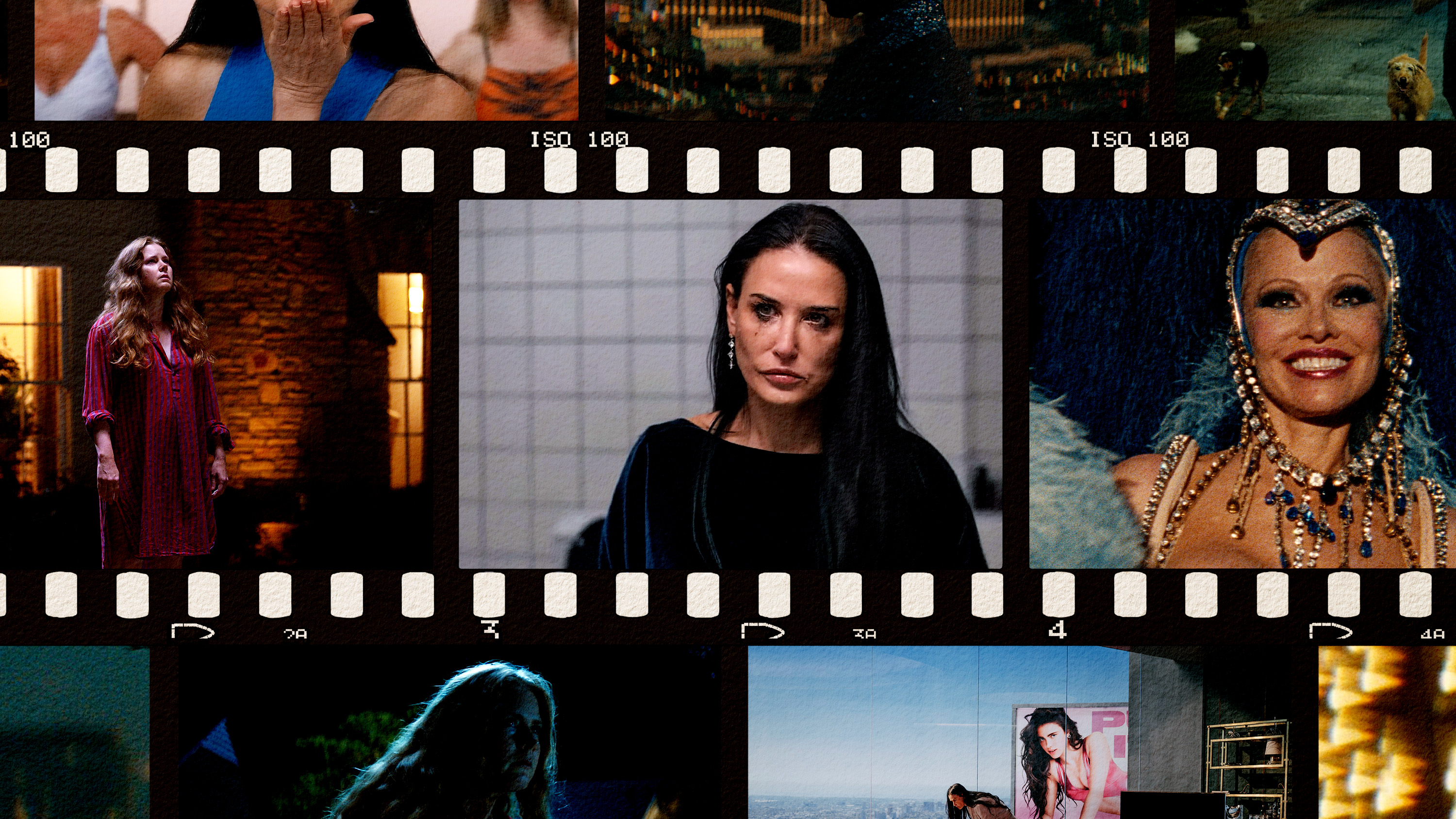
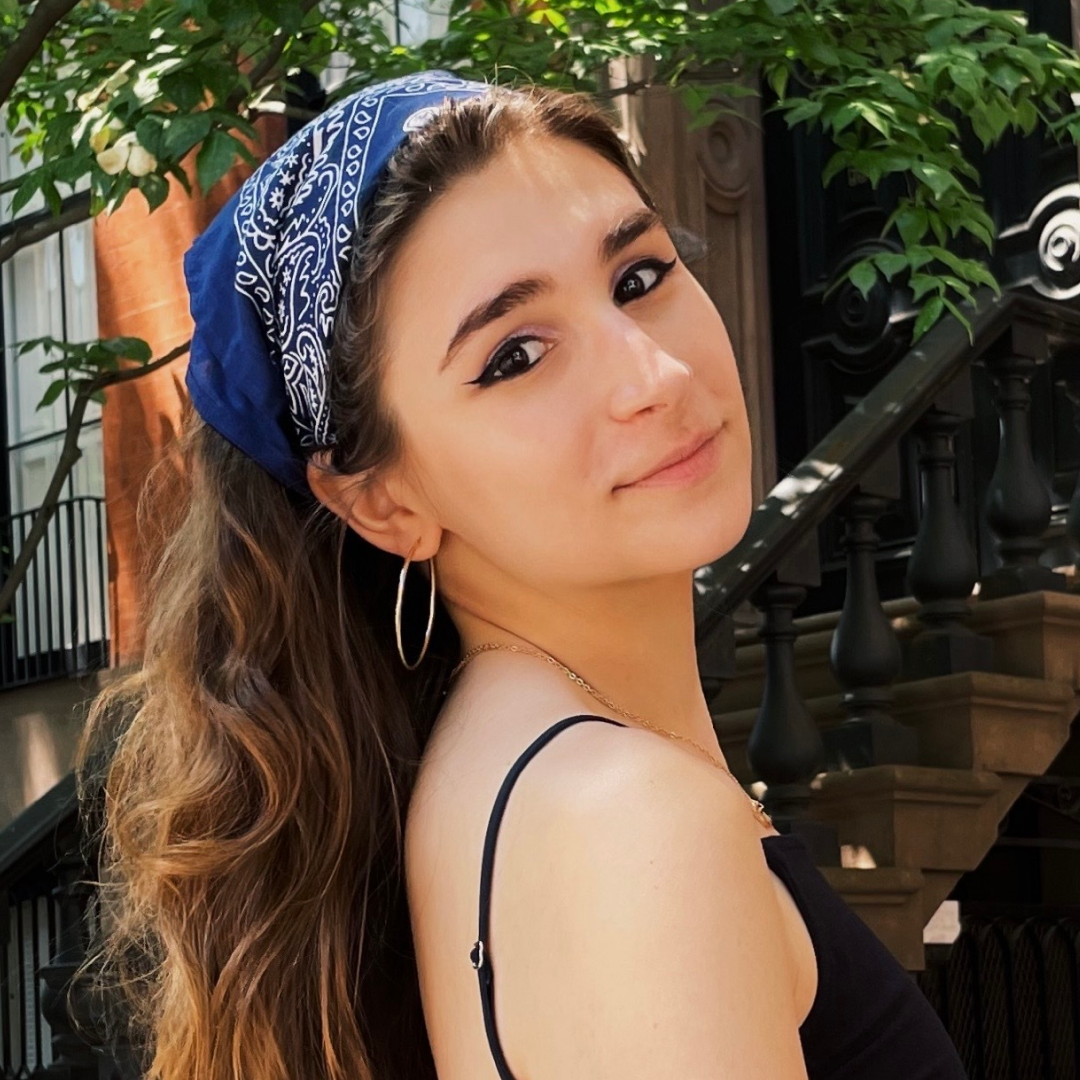
For decades, there has been an unfortunate but common belief in Hollywood (and beyond) that women over 40 are invisible. They’re often relegated to playing somebody’s nondescript wife. Or mother. Or in some mind-boggling cases, somebody’s grandmother.
While this has improved in recent years (though statistics regarding on-screen representation remain dismal), now more than ever, women in Hollywood are taking matters into their own hands and shaping the conversation around aging with their own art. And it’s paying off. Several films that see women wrestle with their age have garnered acclaim this awards season: the Demi Moore-led feminist horror film The Substance, the Gia Coppola-directed indie The Last Showgirl, which marks Pamela Anderson’s first movie in 34 years, the Amy Adams-led adaptation of Rachel Yodder’s novel Nightbitch (and, in some ways, the Nicole Kidman-starring erotic drama Babygirl). Though each film tackles the subject matter uniquely—whether following a celebrity fitness instructor deemed “past her prime,” a Las Vegas dancer facing an unknown path, or a stay-at-home mom who’s convinced she’s turning into a dog—what unites them is how their complex characters face both the internal and external. Their poignancy and power lie not just in these characters’ reckonings with their self-worth, but in realizing just how frustrated they’ve become with the glass ceilings that exist to make them feel the way they do.
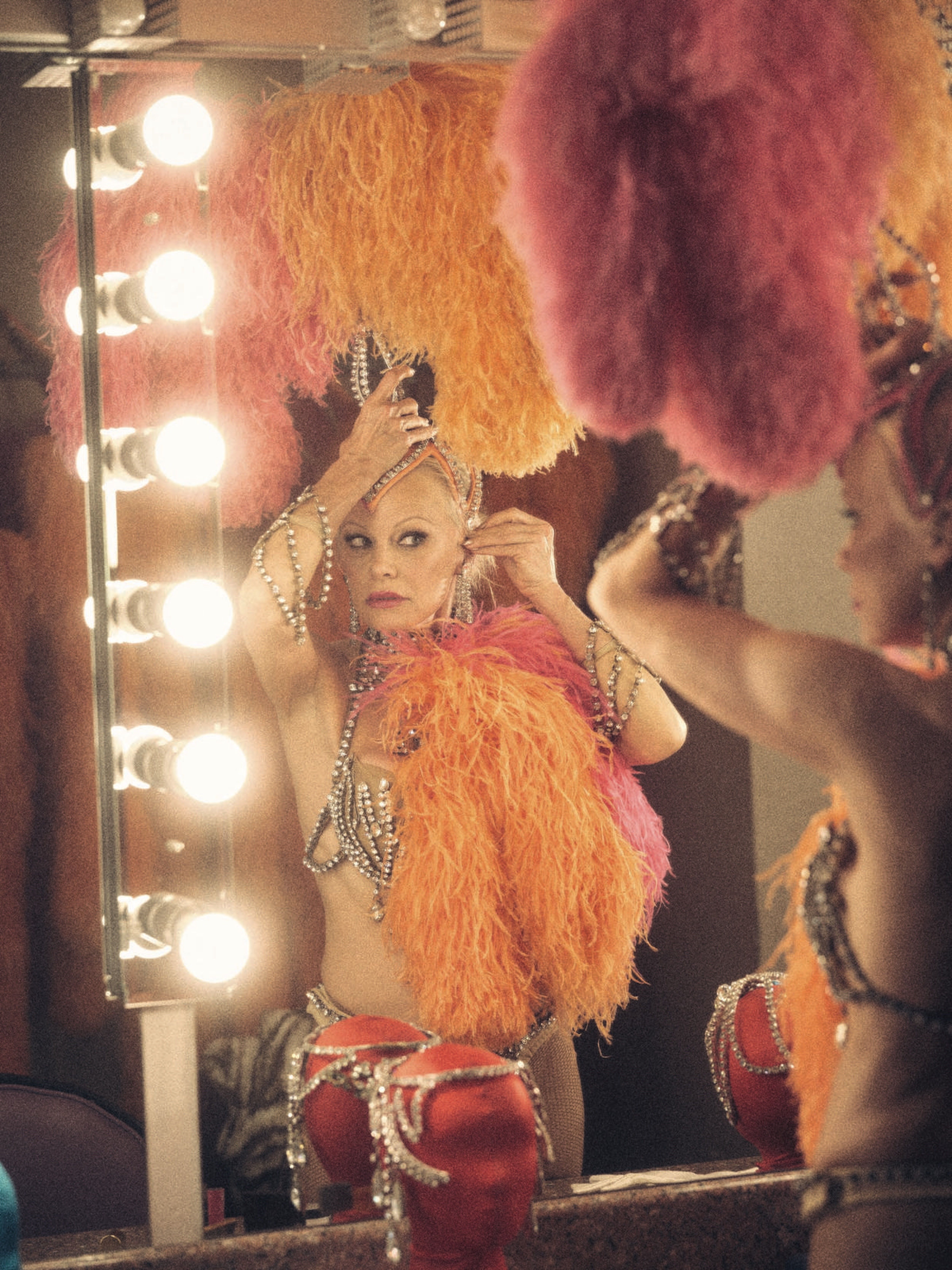
The Last Showgirl finds Shelly (Pamela Anderson) as she has to navigate the next chapter of her career after her Las Vegas show abruptly closes after its 30-year run.
These feminist movies have become frontrunners for Oscar nominations and will continue to resonate in cinema going forward. With the arrival of The Last Showgirl in theaters nationwide on January 10, Marie Claire asked The Substance writer/director Coralie Fargeat, Nightbitch co-writer/director Marielle Heller, and The Last Showgirl writer Kate Gersten about their projects and Hollywood finally embracing of stories that examine the complexities of aging.
Here, they share what they found most liberating in the writing process, the hurdles they’ve had to overcome, and where they hope the industry goes next.
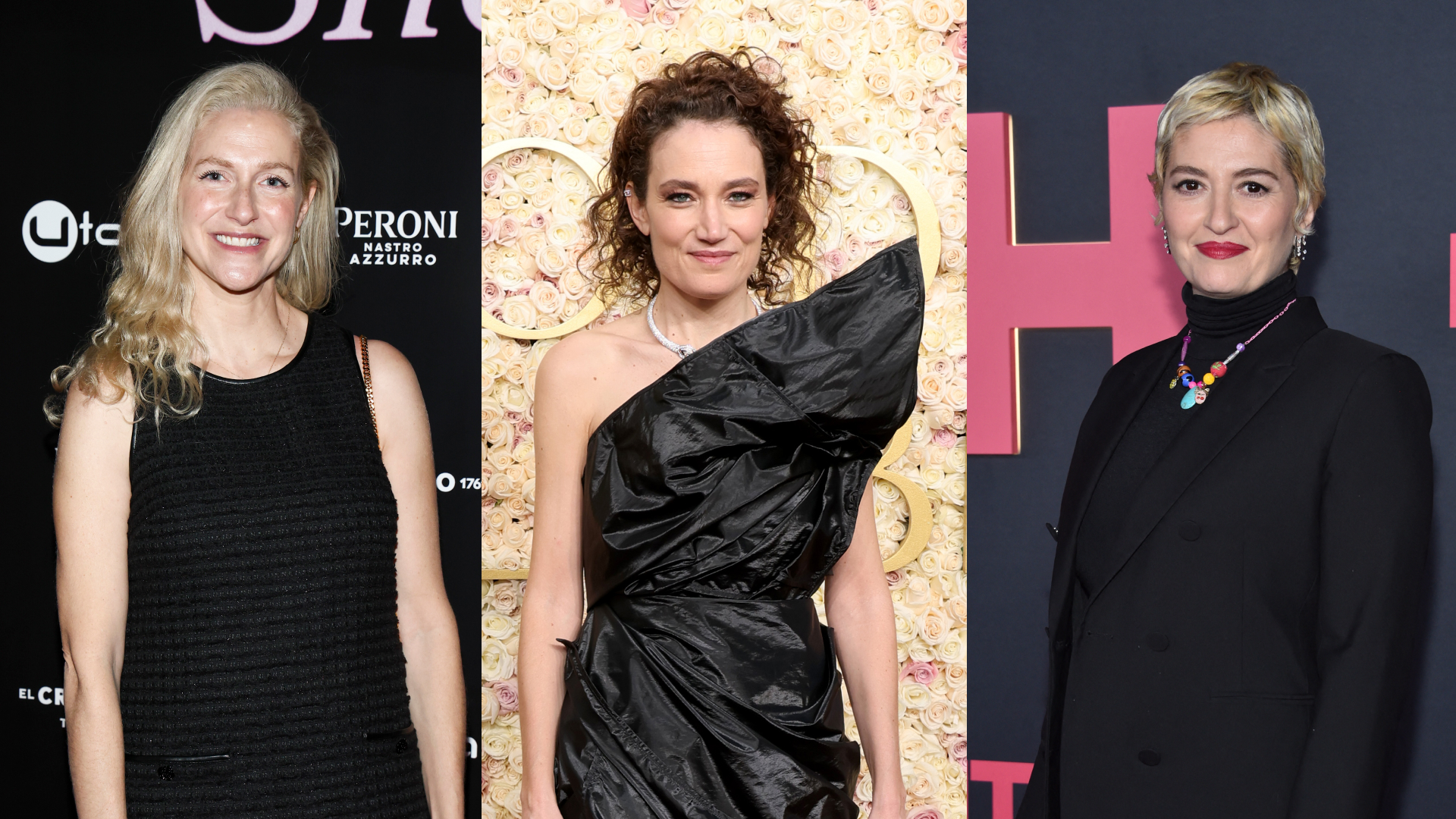
From left: Kate Gersten, Coralie Fargeat, and Marielle Heller.
Marie Claire: There’s a trend in movies that sees aging women as they come to terms with how society casts them aside. Why do you think we’re having these conversations now?
The Last Showgirl writer Kate Gersten: It's taken bravery—from writers, directors and actors but also from producers and distributors. We've actually been writing these stories for years, but they're finally coming to light because the ones putting forth the money for these projects are finally seeing how worthy, relevant, and necessary to female audiences they truly are.
The Substance writer/director Coralie Fargeat: Because women directors finally have more room to express themselves! These voices have always existed, but society didn't really allow them to be heard. That's why it's so important to have diverse voices and points of view in the cultural space.
Stay In The Know
Get exclusive access to fashion and beauty trends, hot-off-the-press celebrity news, and more.
Nightbitch writer/director Marielle Heller: It’s a good question. I don’t know why this is happening now, but I know, for me, it’s happening from a personal place of watching myself and my friends’ age and grappling with what that means as a woman.
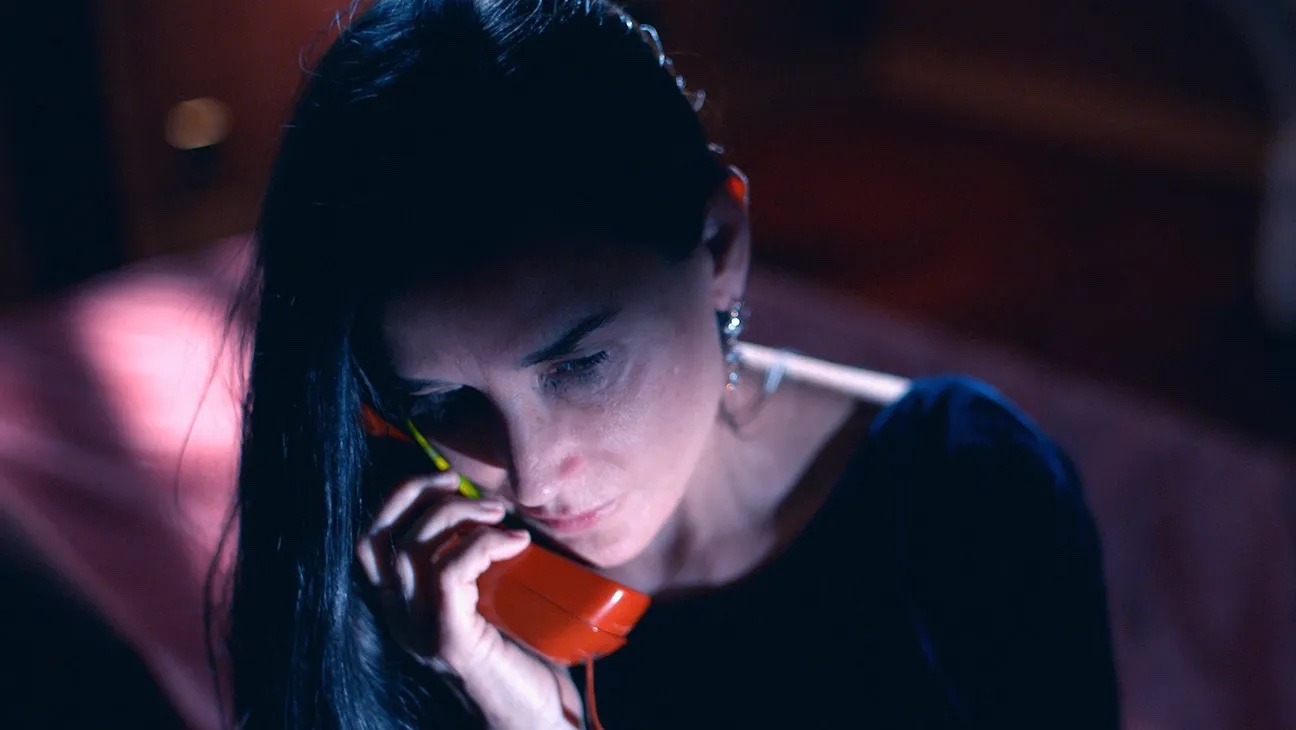
In The Substance, Demi Moore stars as Elisabeth Sparkle, an actress who undergoes a mysterious procedure which promises to create an enhanced version of herself.
MC: Did you have any surprising, refreshing, or even frustrating conversations while developing your project about wanting to depict aging through a female POV?
CF: There were many frustrating moments. I was hearing that movies with ‘a female lead don't sell as much as with a male lead’...which is unfortunately probably true because society has been shaped that way for so long. That's why we need all the more to support the new female voices that emerge. That means financing their films and trusting their visions even if they can be surprising and unconventional.
MH: I’ve had more frustration with some responses to the finished film. Amy [Adams] was asked by a male audience member if we’d ever considered telling the story from the husband‘s point of view, a man who goes out and feels the responsibility of making a living for his family. I wish I had been there. I would have said, ‘We’ve seen that story for decades. It’s called Death of a Salesman, American Beauty, or countless others.’ I guess I’m sort of shocked by how people are up in arms that the story is really from a woman’s perspective.

Amy Adams plays an artist who becomes a stay-at-home mom and begins experiencing surreal experiences at night in Nightbitch.
MC: What did you find to be most liberating about telling this story in such a nuanced way?
KG: I love writing female characters who don't have to be perfect. The cliches that society and Hollywood suffocate women with don't cross my mind while I'm in my writing process, because I'm basically just having conversations with the women/characters in my head. Especially with something like this, where I wasn't discussing it with anyone—no producers, no director, or actors—while I was writing it. It was just me and my imagination and my women.
CF: Being able to tell it in such a not nuanced way! Oh gosh, that was so liberating! As women, we are always asked to be delicate, polite, smiling, and it was so cool to do the exact opposite with The Substance. That is exactly what the film is about: to break free from the typical representations and constraints that have corseted women for so long.
MH: I truly was not worrying what men would think of this movie—for the first time in my life. I felt like Get Out gave me that permission. From my perspective, that movie wasn’t worrying what white people would feel about it, and I found that inspiring.
As women, we are always asked to be delicate, polite, smiling, and it was so cool to do the exact opposite with 'The Substance.'
Coralie Fargeat
MC: Was there anything too unconventional in the script that you chose not to include or that you had to fight to include?
CF: I had to fight for literally everything. The whole movie is so unconventional and doesn’t convey the image people are used to seeing with female portrayal. This is what I wanted to fight against. I didn’t want to have my voice shaped by someone else. I wanted to be able to tell my way of experiencing the world, with its excess, its grossness, its specificity.
MH: I fought to show a woman and her aging body in a natural light. Amy was thankfully really game for this challenge and my collaborators all really understood the assignment, but I think it’s undoing some habits in Hollywood to not light, dress, stage a woman as a sex object.
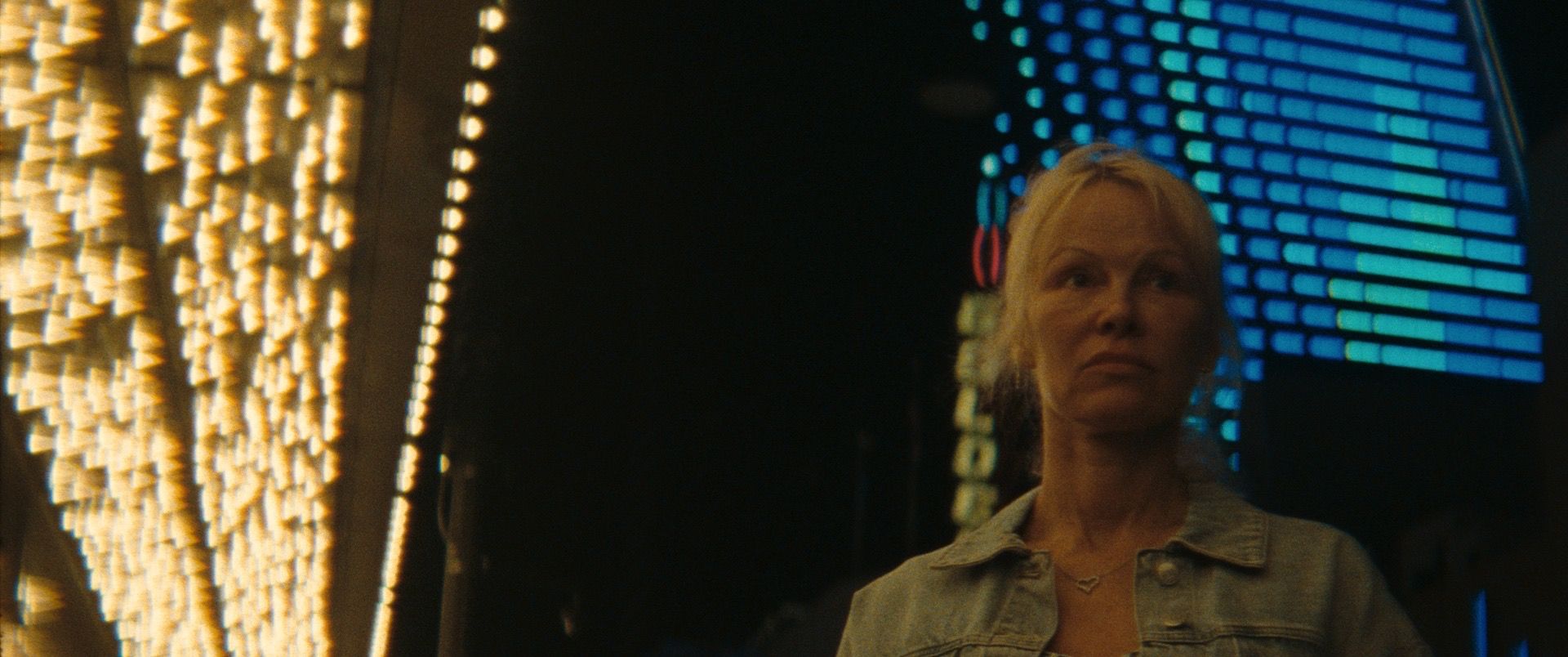
Gersten's screenplay was born out of her unproduced play 'Body of Work,' inspired by the Las Vegas show 'Jupilee!,' which closed in 2016.
MC: These films come from female filmmakers and screenwriters. What added perspectives do you think that brought to these stories?
KG: Oh, the whole damn thing. Women need to tell complex women's stories, it's that simple. Women's stories by men largely focus on sex or competition. That's the male lens. Depictions of groups of women by men are often all about conflict without care. Female characters can and should disagree and spar, but I think male filmmakers forget that we can do that with love, and that at the end of the day, most of us have each others' backs.
MH: I don’t really know how else to tell a story. My lived life informs every choice I make—which is why the more diverse voices making movies, the more diverse storytelling we get. It benefits everyone.
I think it’s undoing some habits in Hollywood to not light, dress, stage a woman as a sex object.
Marielle Heller
MC: Though these films vary in genre and tone (horror to comedy to drama) there’s a somber element at their crux. Why might that be the throughline?
KG: Because being a woman is complicated as hell. But actually, I reject the word ‘somber.’ It's just that what all of us have done here is we've been truthful. Being a woman can be wonderful and it can be miserable. We have to hold contradictions all the time, especially as we age. Being a mother is so hard, yet so fulfilling. Feeling beautiful but ignored is a real mindfuck. A truthful movie about themes like these isn't a ‘somber’ thing, it's reflecting how women feel and, to me, that is beautiful and uplifting.
CF: Well, just listen to the news. What’s happening to women everywhere is still such a fucking disaster. In the real world, we often don't have a choice but to silence ourselves to be able to make our way, so when we can really speak loud through our films, I guess it's the dark part that we can finally express.
MH: Because life is hard, man. Life is suffering. And it’s beautiful and magical. And also hard. Maybe it’s the national mood.
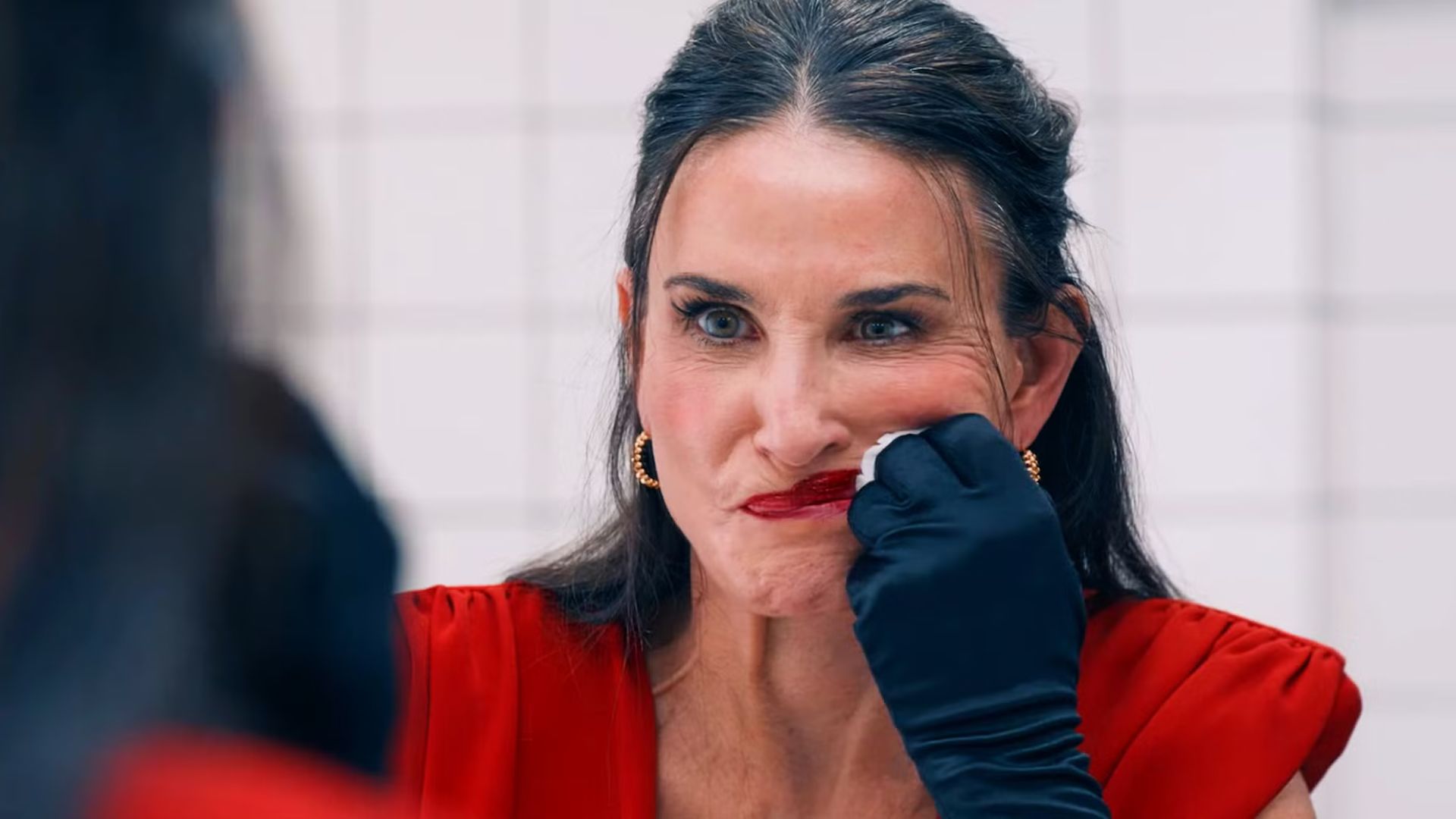
The Substance premiered at the 2024 Cannes Film Festival, where Coralie Fargeat won Best Screenplay.
MC: What depictions of women aging on screen have stuck with you in the past, either positively or perhaps have shown how far we’ve come?
KG: One of my very favorite characters ever is Celeste Talbert in Soapdish, played by Sally Field. She's a soap opera star who feels obsolete at 45. She's paranoid and vengeful and completely insane, but I loved every second of it. It's a satire.
CF: One depiction that has stuck strongly with me is the old woman in the bathroom of The Shining. It’s how you represent a normal process like aging into a nightmare. This is the depiction that has unfortunately existed since the beginning of humanity and cultural representations, like the old witch, the old evil stepmother in the fairy tales, etc.
MH: I can’t think of many good ones, but I remember when I was making Can You Ever Forgive Me? [the 2018 drama about Lee Isreal] and I had this realization that Lee could only truly get away with her crimes because nobody really noticed her. As a woman of a certain age, she was fairly invisible. That was a lightbulb realization for me.
Being a woman can be wonderful and it can be miserable. We have to hold contradictions all the time, especially as we age.
Kate Gersten
MC: What progress would you like to see from Hollywood with these kinds of stories being told? And more opportunities for older women on screen?
KG: Just let us tell more of our own stories. Female filmmakers and writers shouldn't be hard to find. P.S. Give us more money to make our films.
CF: Don’t dump these movies, support them! I want to see a real commitment to support new female voices.
MH: I just want people to watch these awesome movies. I want them to be taken as seriously as the wonderful movies about men and not be considered fringe. I want the money to reflect the reality of the world.

Sadie Bell is the Senior Culture Editor at Marie Claire, where she edits, writes, and helps to ideate stories across movies, TV, books, and music, from interviews with talent to pop culture features and trend stories. She has a passion for uplifting rising stars, and a special interest in cult-classic movies, emerging arts scenes, and music. She has over eight years of experience covering pop culture and her byline has appeared in Billboard, Interview Magazine, NYLON, PEOPLE, Rolling Stone, Thrillist and other outlets.
-
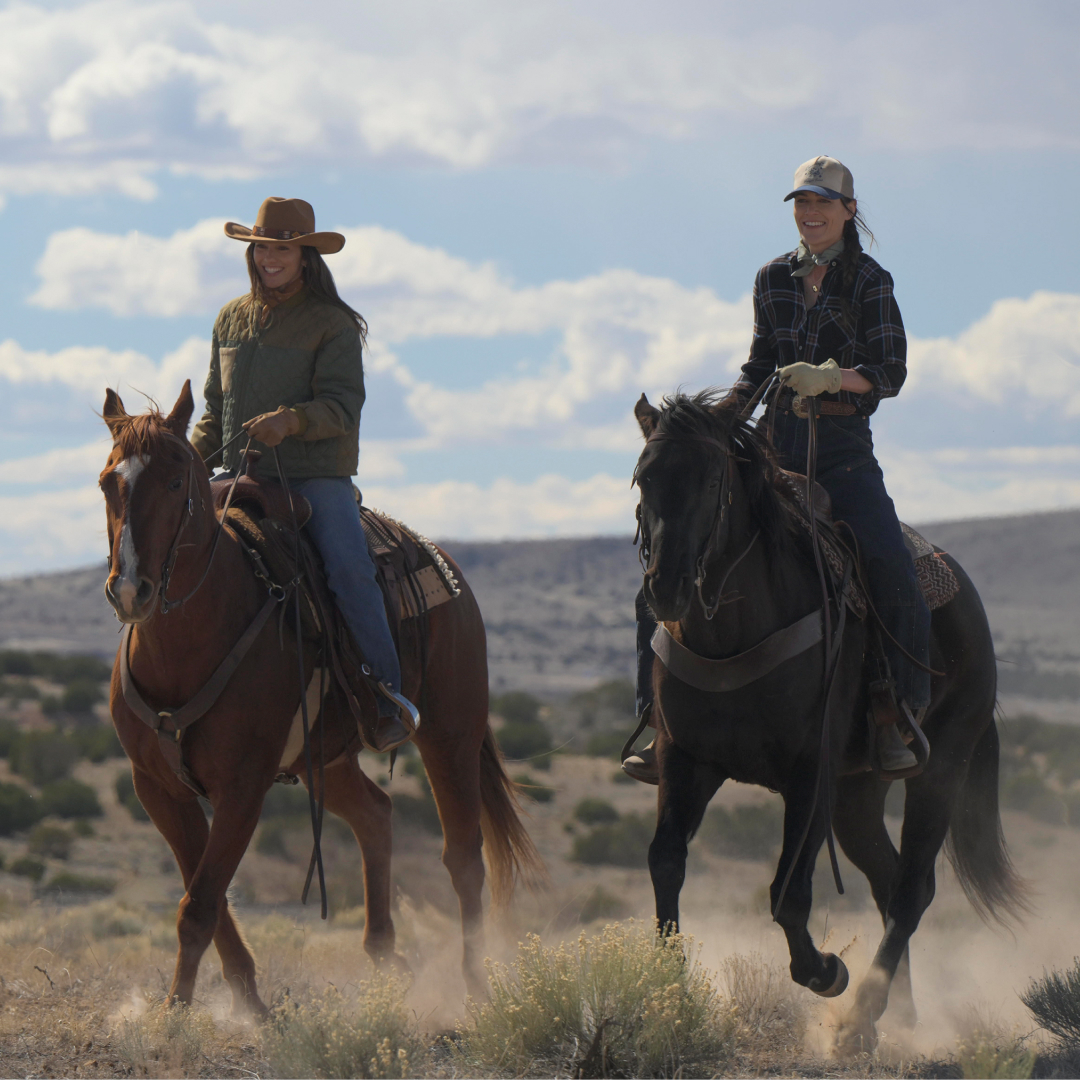 'Ransom Canyon' May Give Texas the Small-Town Drama Treatment, But That's Not Where It Was Filmed
'Ransom Canyon' May Give Texas the Small-Town Drama Treatment, But That's Not Where It Was FilmedHere's what to know about the real-life ranches featured in the Netflix series.
By Quinci LeGardye
-
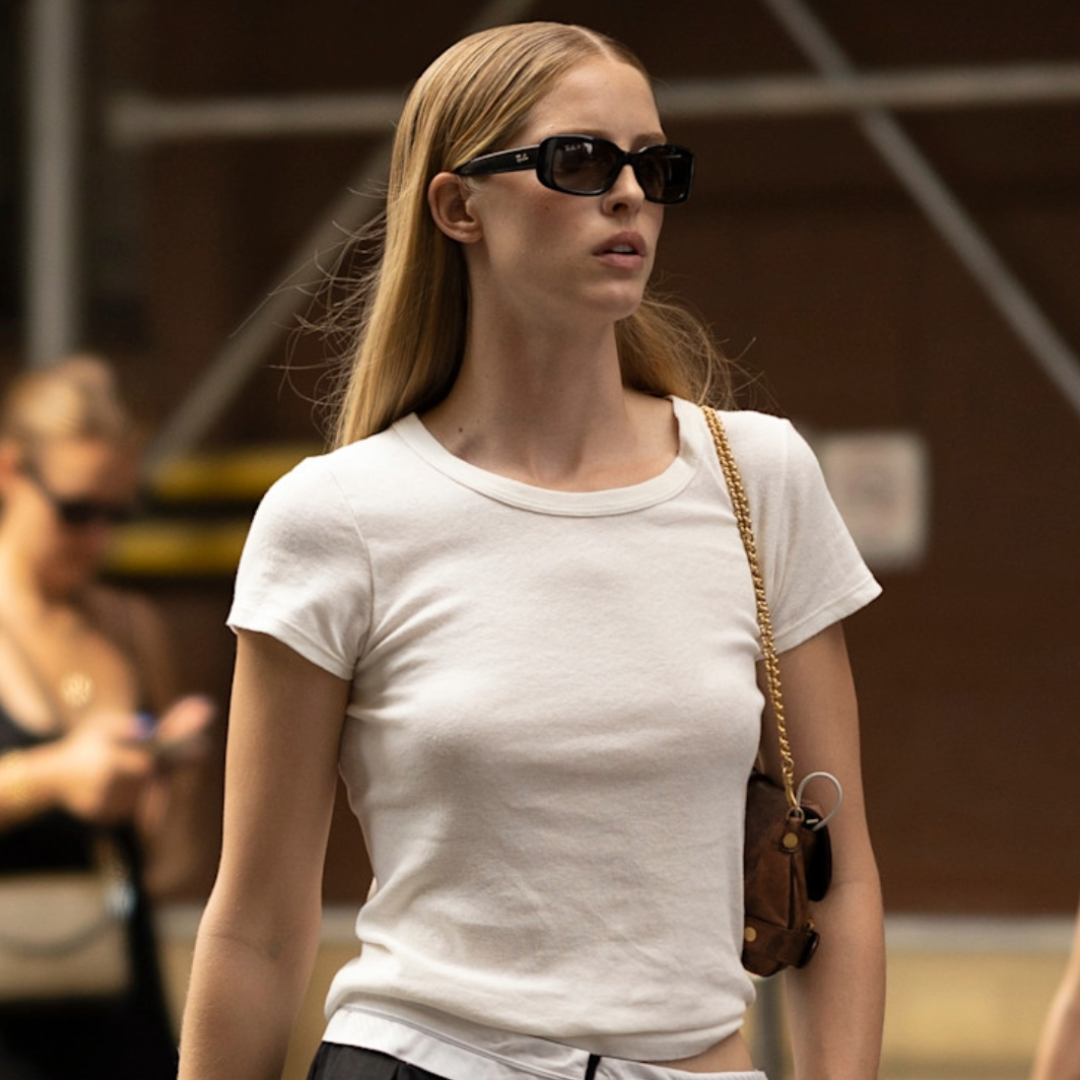 I Predict These 23 On-Sale Wardrobe Staples From Nordstrom Will Be Sold Out Next Week
I Predict These 23 On-Sale Wardrobe Staples From Nordstrom Will Be Sold Out Next Week23 Must-have shoes, tops, skirts, and more.
By Brooke Knappenberger
-
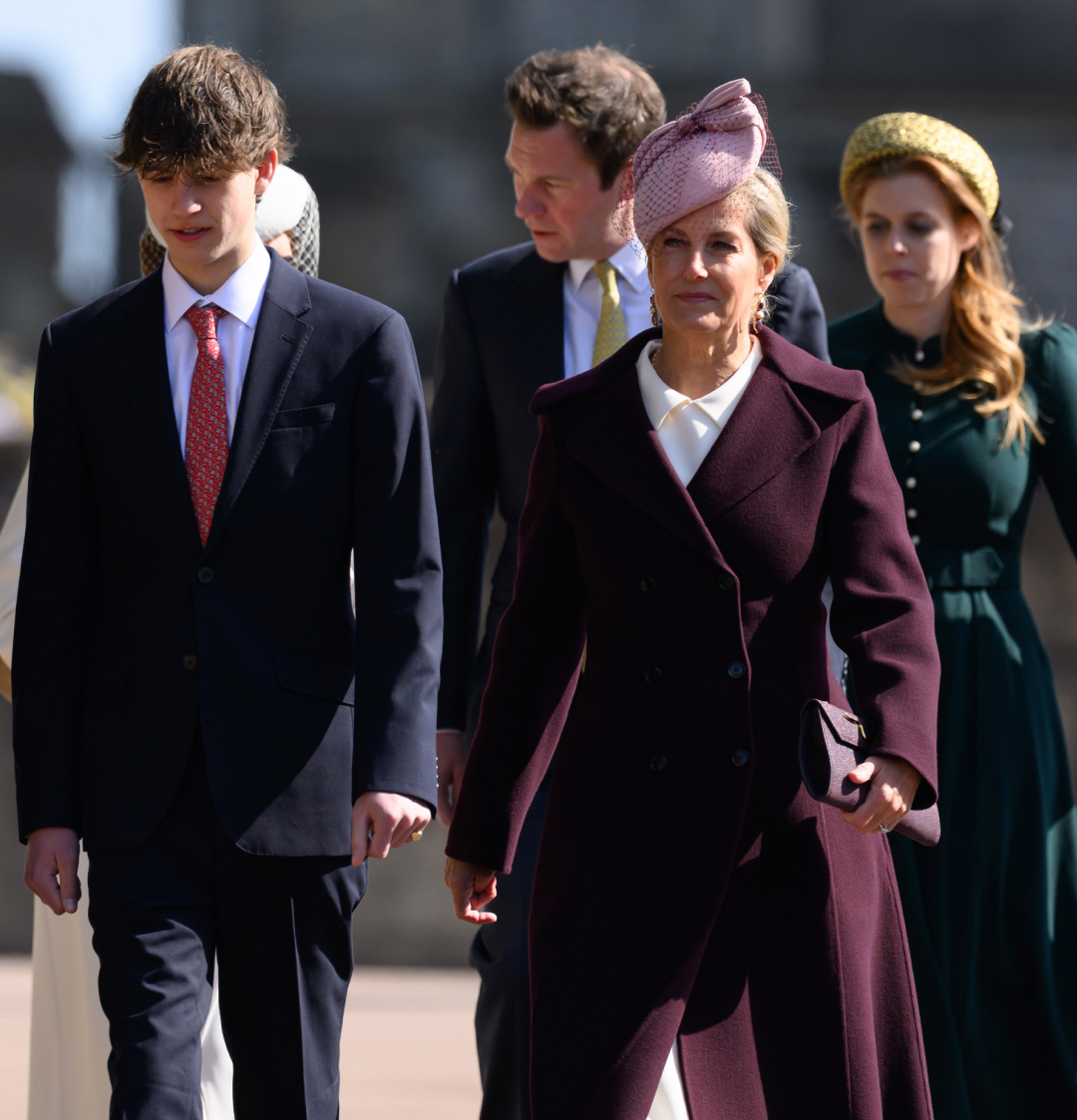 Fans Can't Stop Talking About This Rarely-Seen Royal After Easter Appearance
Fans Can't Stop Talking About This Rarely-Seen Royal After Easter AppearancePrince Edward and Duchess Sophie's son shocked royal watchers with his grown-up look on Easter.
By Kristin Contino
-
 Is 'Ransom Canyon' A Real Place? What to Know About the Netflix Western's Filming Locations
Is 'Ransom Canyon' A Real Place? What to Know About the Netflix Western's Filming LocationsHere's what to know about the real-life ranches featured in the Netflix series.
By Quinci LeGardye
-
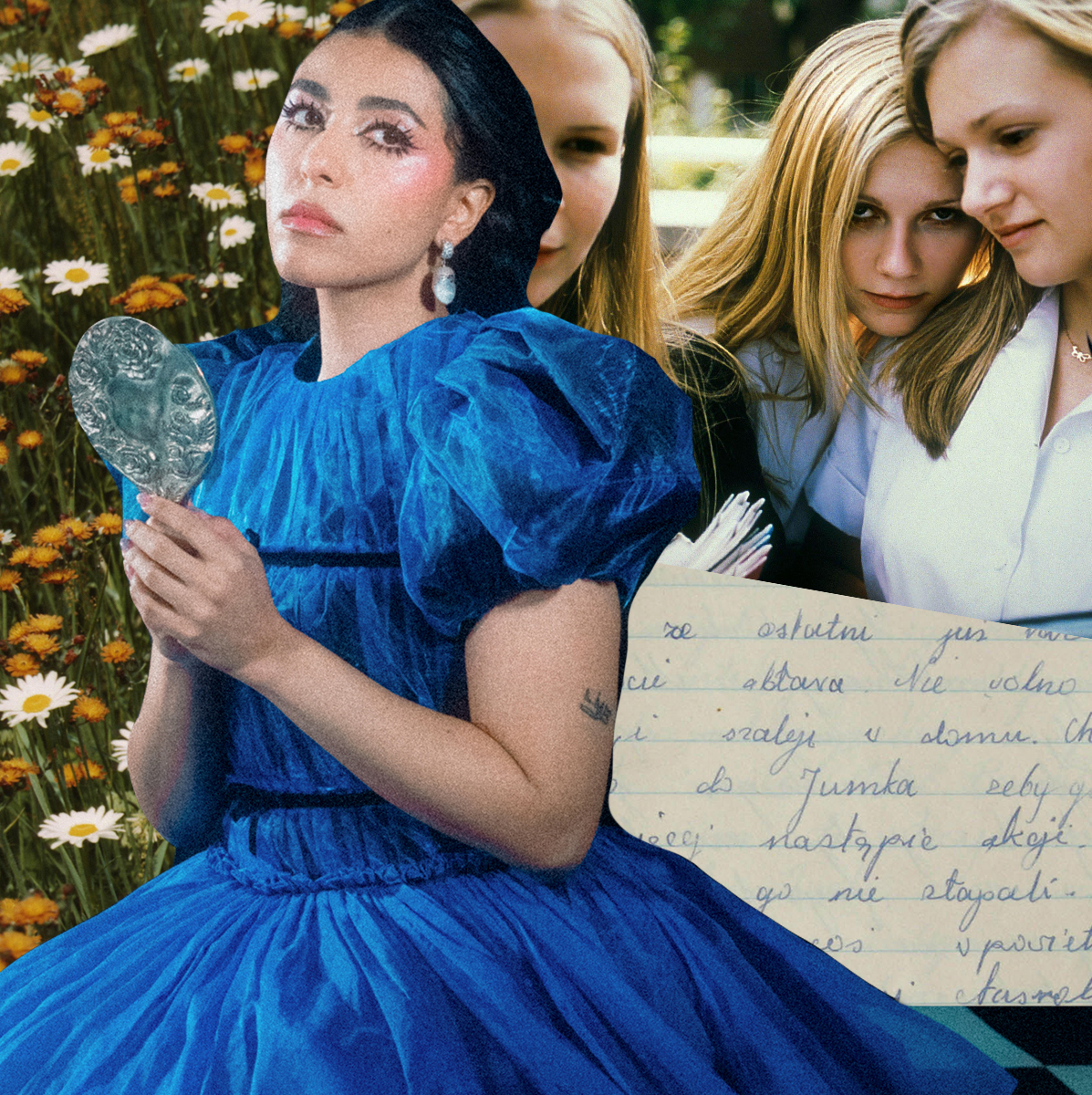 After 25 Years, 'The Virgin Suicides' Is Still Influencing Artists Like Me
After 25 Years, 'The Virgin Suicides' Is Still Influencing Artists Like MeTo coincide with the film's anniversary, Mia Berrin from Pom Pom Squad reflects on what it's meant to her artistic journey.
By Sadie Bell
-
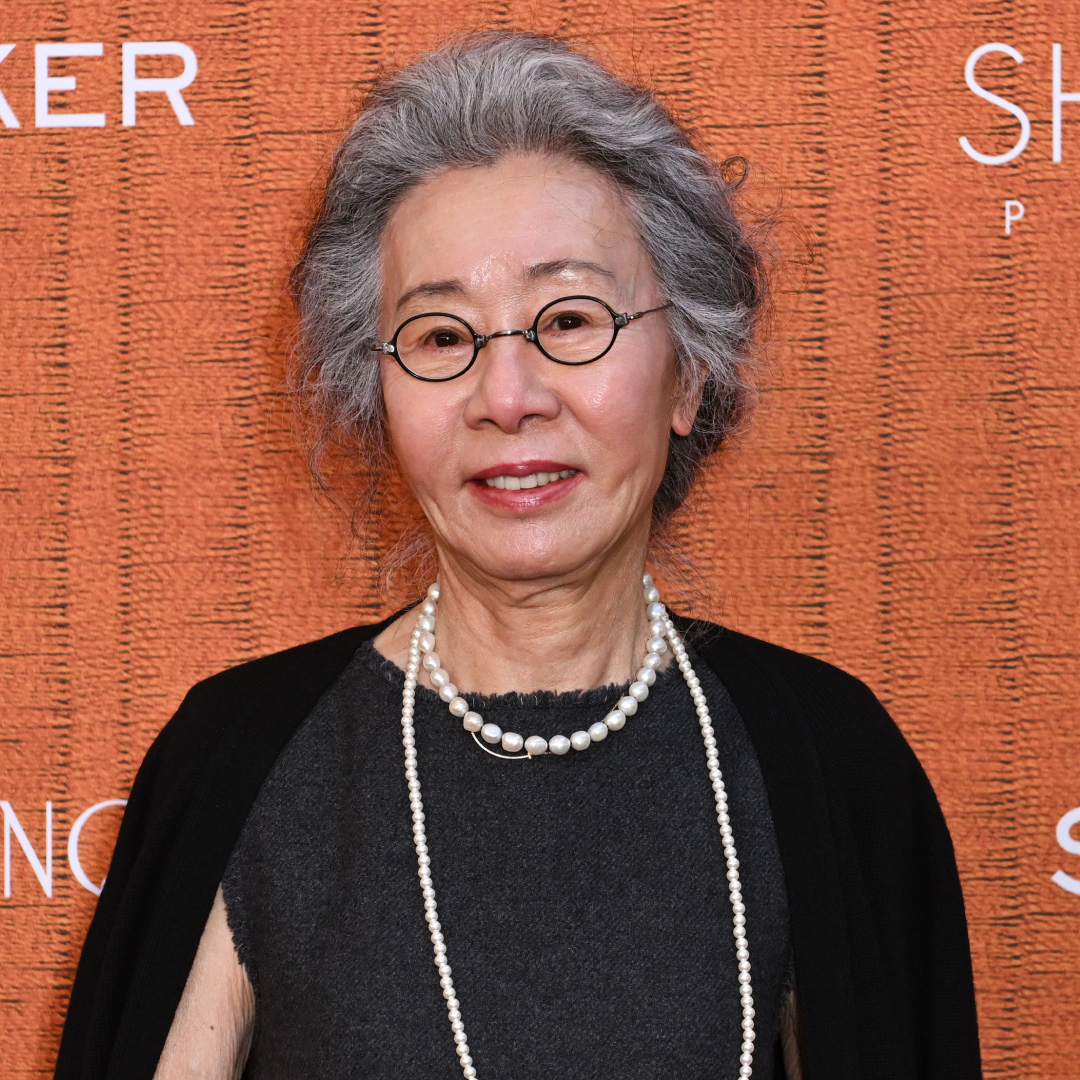 Youn Yuh-jung Poured Her Heart Into 'The Wedding Banquet'
Youn Yuh-jung Poured Her Heart Into 'The Wedding Banquet'The Oscar winner shares why the LGBTQ+ rom-com hit close to home and the message she hopes it sends to ''conservative'' Koreans.
By Quinci LeGardye
-
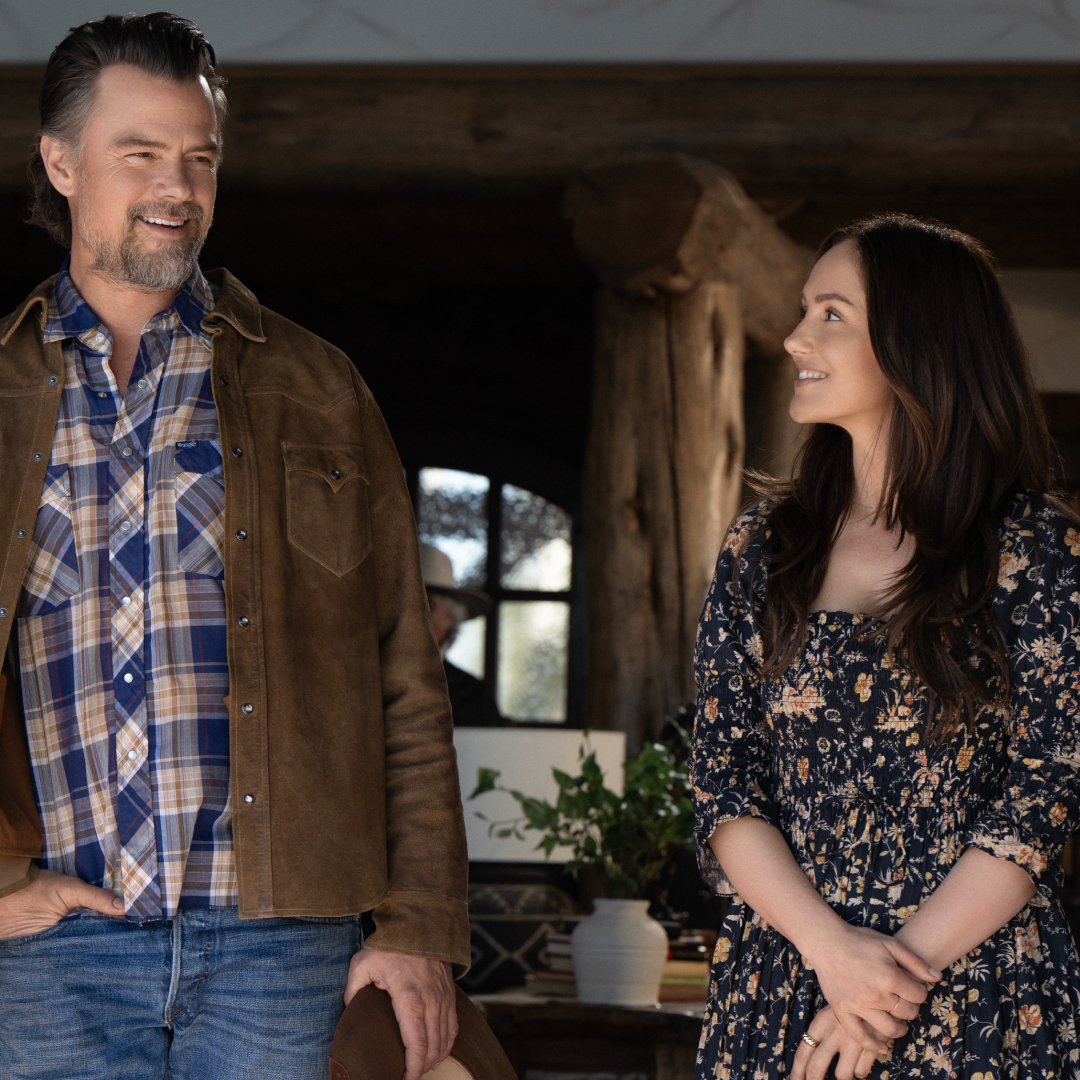 'Ransom Canyon' Season 2: Everything We Know
'Ransom Canyon' Season 2: Everything We KnowWe're dying to see where the show's central will-they-won't-they goes next.
By Radhika Menon
-
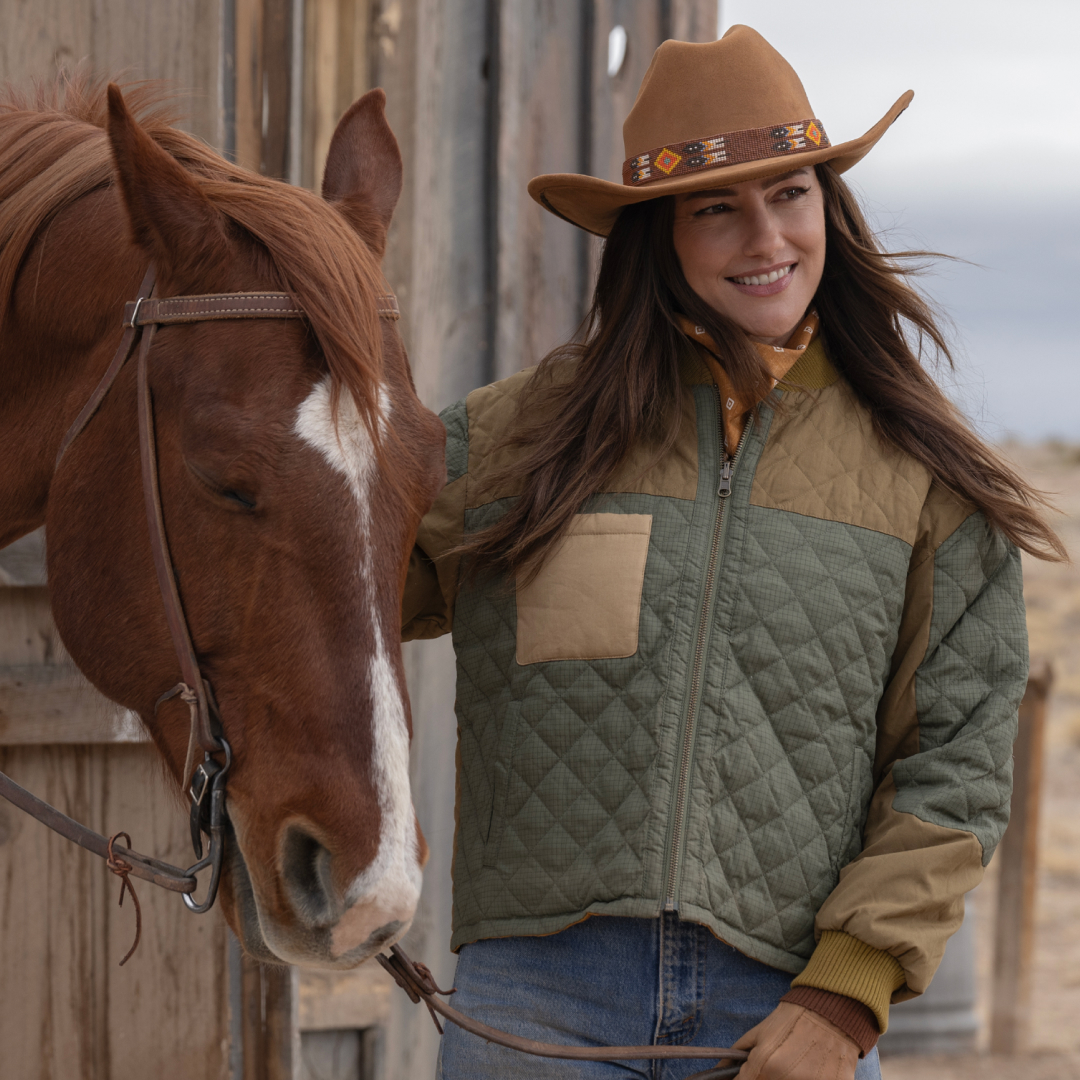 What to Know About the 'Ransom Canyon' Cast
What to Know About the 'Ransom Canyon' CastMove over, 'Yellowstone,' a new ranching series is in town.
By Radhika Menon
-
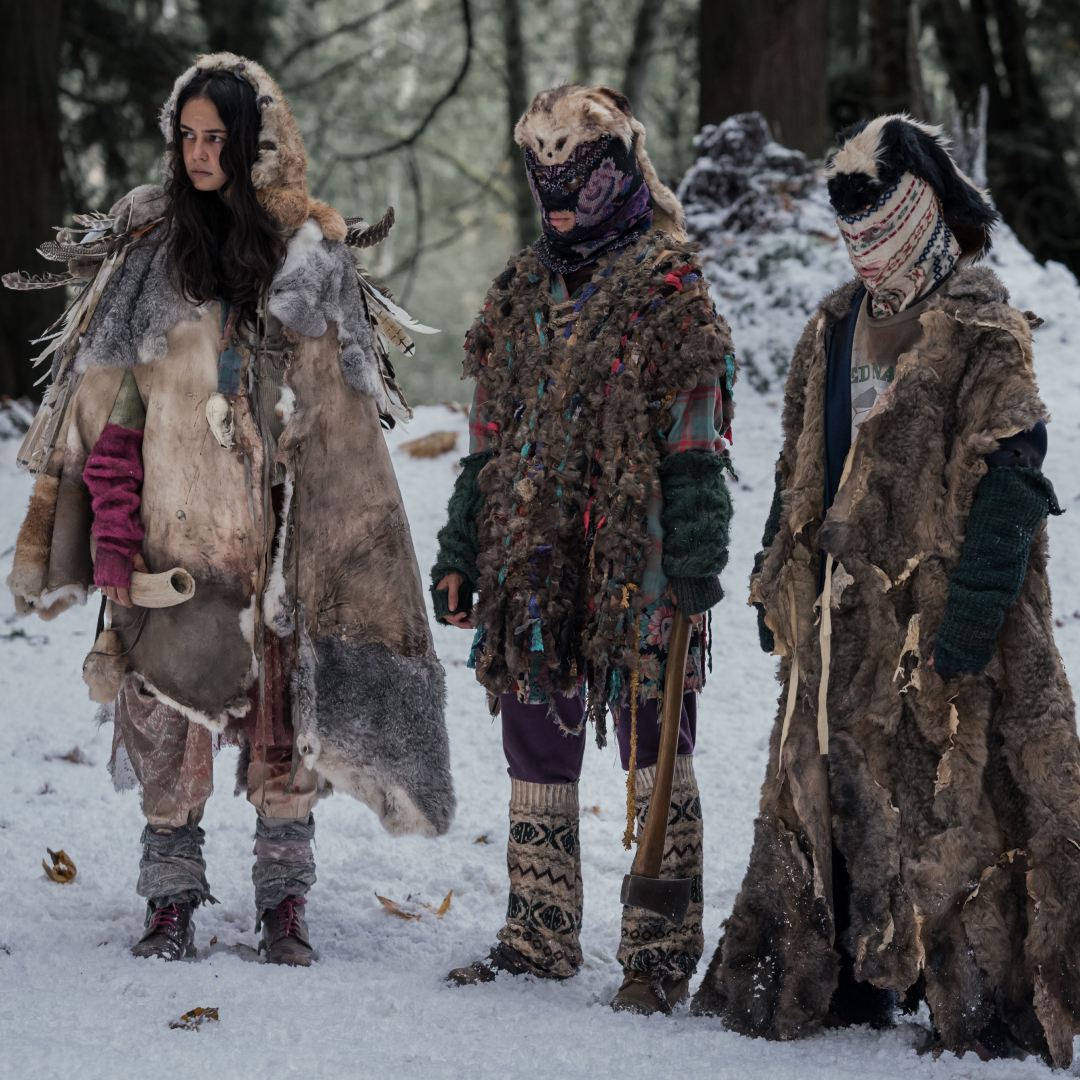 'Yellowjackets' Season 4: Everything We Know
'Yellowjackets' Season 4: Everything We KnowThe showrunners still have plans to show how the girls get out of the wilderness.
By Quinci LeGardye
-
 Meet the Cast of 'Resident Playbook'
Meet the Cast of 'Resident Playbook'The spinoff of the hit K-drama 'Hospital Playlist' features several young actors as first-year OB-GYN residents.
By Quinci LeGardye
-
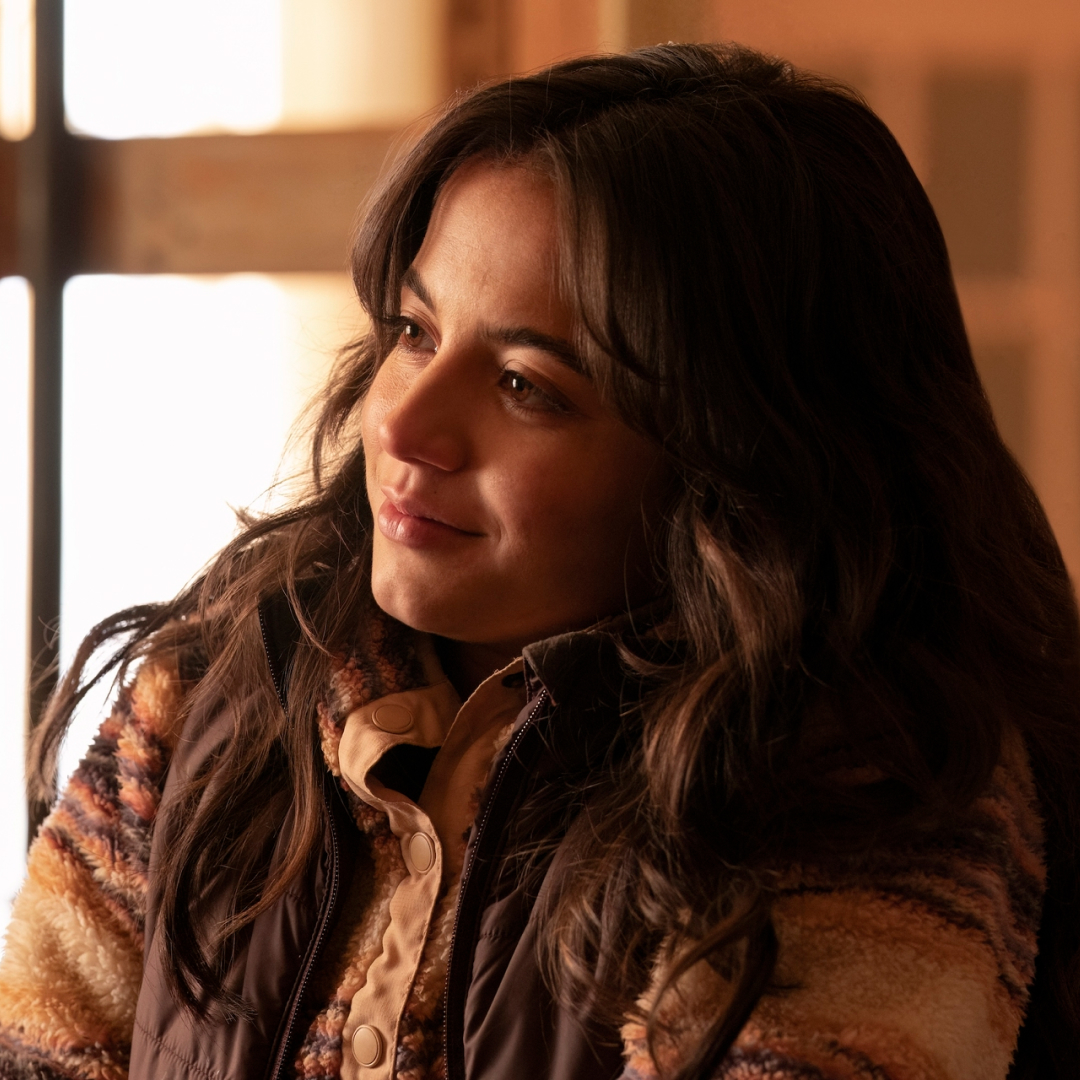 Meet Isabela Merced, the Rising Star Who Plays Dina in 'The Last of Us'
Meet Isabela Merced, the Rising Star Who Plays Dina in 'The Last of Us'We're already obsessed with this up-and-comer.
By Quinci LeGardye